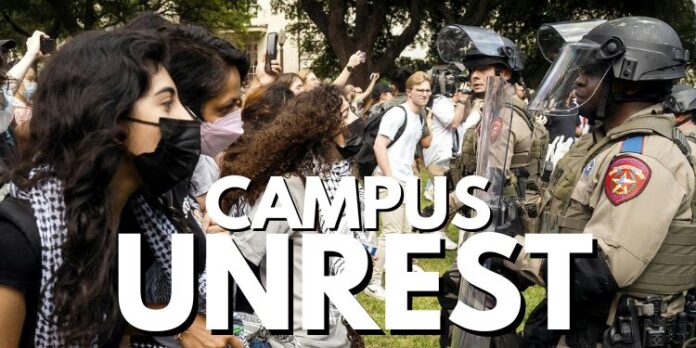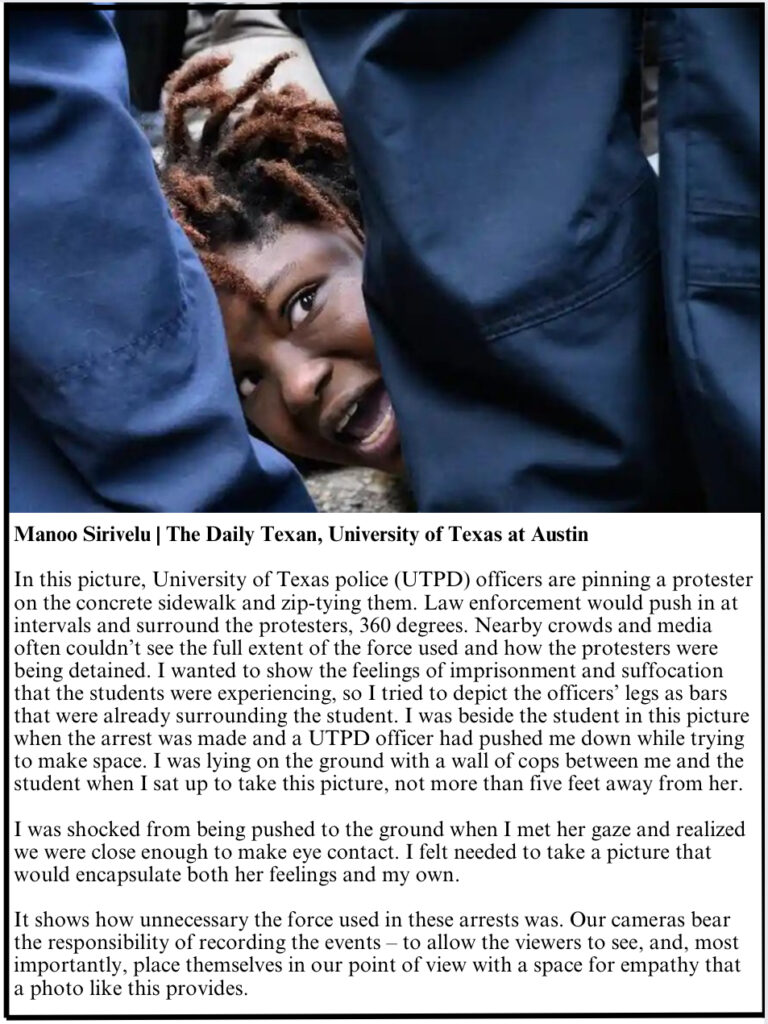University Protests Israel-Hamas- Student Movements Spark Nationwide Protests Over Israel-Hamas War
University Protests over the Israel-Hamas Conflict are being met with a strong police presence resulting in arrest’s in college students across the nation.
The U.S. and Texas constitutions guarantee the right to protest, encompassing freedom of speech and assembly. These rights enable individuals to engage in symbolic actions and organize peaceful demonstrations on designated public areas, though they come with certain restrictions.
Amid escalating tensions over the University Protests about Israel-Hamas, students at universities nationwide have held demonstrations in solidarity with Palestinians, garnering attention both locally in Texas and nationally.
In response, Texas Governor Greg Abbott, in late March, mandated public universities to amend their free speech policies, hinting at disciplinary measures for non-compliance.
Following Governor Abbott’s directive, each university’s board of regents chair is required to submit evidence within 90 days that confirms the implementation and enforcement of these updated free speech policies.
The ongoing Israel-Hamas war has notably tested free speech boundaries at colleges across Texas and the U.S., with pro-Palestine and pro-Israel student groups actively protesting and engaging in vigorous debates, challenging campus administrators to maintain a balance between moderation and promoting intellectual discourse.
Authorities, including law enforcement and university administrations, may enforce reasonable regulations regarding the time, place, and manner of protests, ensuring these rules are impartial and do not disproportionately affect specific groups. Many institutions establish “free speech zones,” although generally, outdoor campus protests are legally supported.
Significant protests ignited by Columbia University students in mid-April concerning the Israel-Hamas conflict have spread to other institutions, culminating in over 2,000 student arrests nationwide.
These demonstrations have echoed across prominent Ivy League campuses, including Yale, University of Connecticut, Harvard, Princeton, Brown, Northwestern, University of Southern California (USC), University of California (UCLA), University of Texas at Austin (UT), and many others.
In San Antonio, the University of Texas at San Antonio (UTSA) witnessed mainly peaceful protests. Conversely, at UT Austin, a substantial student walkout in support of Palestine led to nearly 80 arrests, with 45 detainees unaffiliated with the university.
Students across campuses are advocating for universities to cut ties with entities that support Israeli military actions in Gaza and, in some cases, are pushing for complete disassociation from Israel. They demand divestment from companies involved in manufacturing military equipment and those backing the Israeli government, including arms providers.

The resurgence of antiwar protests in the U.S. reflects opposition to Israel’s military actions in Gaza, triggered by a significant attack from Hamas on October 7, where nearly 1,200 Israelis were killed, and over 34,000 Palestinians lost their lives.
Discussions on anti-war college protests often recall the Vietnam War campus demonstrations of the 1970s, notably marked by the Kent State shootings and the iconic “Make love, not war” slogan.
Historically, during the Kent State protests 54 years ago, the Ohio National Guard’s intervention led to the shooting of 13 students, four of whom died, sparking nationwide unrest. Fortunately, the recent demonstrations have not seen such tragic outcomes, yet they underscore enduring concerns over America’s foreign policy and the fundamental right to protest.
The recent wave of student-led protests across university campuses against the Israel-Hamas conflict highlights the critical role of protest in American democracy, underscoring the importance of free speech and civic engagement in shaping public discourse and policy. As these tensions continue to unfold on academic grounds, the enduring spirit of protest and the need for a thoughtful approach to managing dissent in a free society are more apparent than ever.






